A Q&A With Anthony Knopps: Author, Journalist and SNHU Comm Instructor
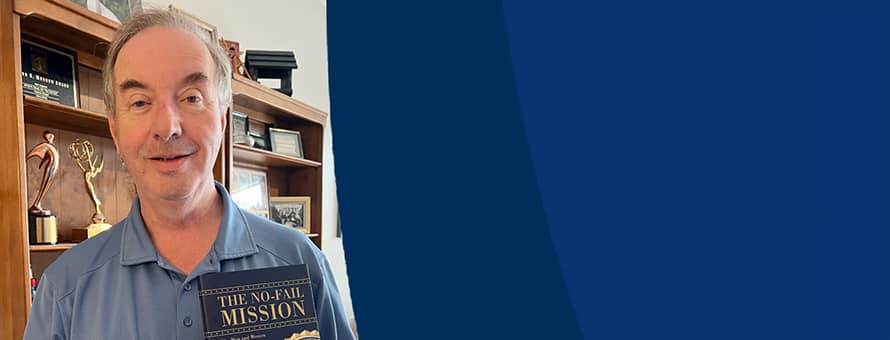
Anthony Knopps has held a lot of titles. One that's core to his 30+ year career, though, is "storyteller." Uniting his bachelor’s degree in communication and master’s degree in political science, Knopps has established himself in journalism, winning Emmys and other awards, and he has authored several books.
He’s also an educator, teaching the next generation of storytellers. At Southern New Hampshire University (SNHU), Knopps has spent the past decade teaching courses in strategic communications and media technology for the master’s in communication program, where he has also served as a subject matter expert.
After the release of his most recent book, "The No-Fail Mission: The Men and Women Behind the Presidential Service Badge," Knopps shared a bit about his career, an accident that inspired a TEDx talk, and advice on public speaking.
The following is an edited transcript of the interview.
Rebecca LeBoeuf Blanchette (RLB): How do you find ways to connect with your students?
Anthony Knopps (AK): Well, you know online gets kind of a bad rap sometimes — “it's not a real class” or “it's not a real course” or not a real program — and I would beg to differ with that, (and) that’s putting it kindly. It's still communication. You can communicate effectively over many different levels. You don't have to be in person to be an effective communicator.
To say an online environment doesn't allow you to connect — not really accurate. Because if you can communicate via any form, especially now when everybody's on (phones), you can be an effective communicator. And the challenge is how can we be as effective when we're (on phones) and also when we’re in person?
RLB: Why have you devoted this part of your career to course design and to being an instructor and teaching the next group of communicators?
AK: As a journalist, you're always teaching. You know, even when I was just starting out, you're teaching an audience about a topic that they may not know. You're teaching sometimes people in the newsroom about a topic that they may not know.
Now in my second career, I guess you could call it, it's the ability to connect. And I think for communication professionals, that's important. If I can bring my real-world experience and help students navigate, what is, you know, (a) rapidly changing environment, then why wouldn't I?
RLB: You were recently a speaker here at TEDxSNHU, and you challenged people to consider mortality. Why was this such an important story for you to tell the world?
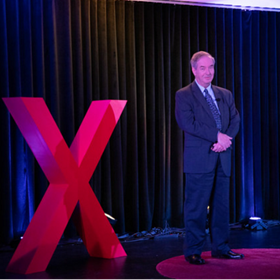
AK: In short, I shouldn't be here. I was in an accident with my son. (We) were driving home. We were maybe five minutes from our house, and we got hit by a distracted driver.
We were checked out at (the) hospital, and we were given the green light to go home. I had done some work in various places in the interim, and about six weeks later, there was an evening where nothing worked. I couldn't, you know, change my clothes. I couldn't talk clearly. I couldn’t walk clearly. My wife was like, “We're gonna take you to the hospital.”
(I) got to the hospital, and I was speaking gibberish, and they decided (to) send me to the level one trauma center where, within an hour, I was on the table for emergency brain surgery. It was as a result of the accident six weeks earlier. The doctors had said if I had not gone to the hospital that night, I would not have awoken.
The accident that I had had a 78% mortality rate. I'm a former reporter. I look at all the data points I can. Those that are able to return to a level of cognitive function is even lower than that. So, in essence, when I say I shouldn't be here, I really shouldn't be here, and I shouldn't be able to do what I can.
I use that as an opportunity to try to make the most of each day. And that was the crux of the TEDx talk: What are you going to do today? We always go — (if) we can just get through the day; it'll be great tomorrow. Tomorrow is not guaranteed.
So, what can we do today and at this moment in time? And it really speaks to living in the moment.
It's humbling when people talk to you about your TEDx talk, and they say that it has touched them in different ways. People that say, well, when I'm having a bad day, I go back to that and click on it as sort of a reset. Those are impacts that you hear of, but there are also just as many impacts that you may have that you never know.

RLB: What advice do you have for people that have stories like this or something they want to say, but they're nervous to speak up?
AK: First of all, the audience doesn't know what it doesn't know. So, people get into the mood that, if I say something, somebody in the audience is going to call me out because I got something wrong — or whatever. Sometimes, yeah. Maybe that happens. But most of the time, no, that doesn't happen.
Because the audience is coming to you for information and, particularly if it's about you, nobody can tell your story better than you can.
How you frame it is up to you. Are you going to remember everything you want to share with an audience? No, but that's okay.
There's the corollary “fake it till you make it.” I don't know that that's necessarily accurate, but there's a bit of truth to that. As long as you're clear and you're direct and you're overt with your messages so people don't sit there and go, what did she just say? What did he just say? And you don't lose them.
A good speaker speaks about, you know, 120-150 words a minute. But the average person can process about 300 words a minute. So what are we doing with that other half? What we're trying to figure out — did we lock the door? Do we need to get gas? What do I need to get at the grocery store? Did I let the dog out? All these other things are in there.
It's something that we as communicators need to recognize that we need to do a better job of putting our audience in a position where they can effectively listen to what we're saying.
RLB: You recently released your book, “The No-Fail Mission: The Men and Women Behind the Presidential Service Badge.” What inspired you to write about these military service members who were honored with the badge?
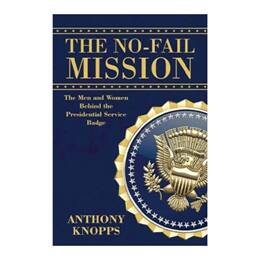
I was actually commissioned to write it. It's a badge that hasn't really been showcased. People know about the Bronze Star, the Silver Star and the Purple Heart and all those things, but the Presidential Service badge has really been around for a little more than 60 years.
It's given to those military men and women who provide meritorious service to the Office of the President. And what does that mean? It's not like there's a checklist. You don't have 10 things you check off and then — poof — you're a service badge recipient.
These are stories. And as a storyteller, you mean nobody's ever told these stories before? And that's attractive. These people were in the room in a lot of ways when history happened.
The underlying theme of the book is the humility of these folks. They don't do it for party. They don't do it for self. They do it for our country and for our democracy.
That's kind of the epitome of a hero. They don't they don't do it for anything else but for their country.
In this book, “The No-Fail Mission,” the proceeds from this go to a scholarship fund for families of military.
We’ll never know who those kids are, who those family members are. But I thought it was important that we recognize that you can't be out protecting the president without a stable — as much as it can be — home life. You can't be out protecting the president if you're worried about who's going to pick up your daughter from soccer practice. And we forget that these people that serve the office of the president are human, and they have lives, and they have challenges, they have families.
RLB: What’s next for you?
AK: In terms of “The No-Fail Mission,” obviously working on the second one and then trying to get to 10. I don't know if I have enough words to do that or enough strength in the fingers to do that, but I've got a couple more projects on the horizon.
I've got another children's book I'm hoping to get out first quarter of next year. It's called “I Want a Book About Me.” It’s how not to be selfish, which is cute. It was my daughter's suggestion. When she came back from university one spring, she goes, you write all these things, but you never write a book about me. And I said, hold up, what was that? I’m working with an illustrator with ties to SNHU, ironically, to build that out. [Illustrator Keith S. Turner '20 earned his Bachelor of Arts in Graphic Design and Media Arts from SNHU.]
I've got a World War II book about a bombardier that, you know, the story is just so compelling. It's never been told.
I think the key thing is to find those stories that are engaging, that have not always been shared and do that. And just find different things to do every day.
For more information about Knopps and his books, visit his website.
A degree can change your life. Choose your program from 200+ SNHU degrees that can take you where you want to go.
Explore more content like this article
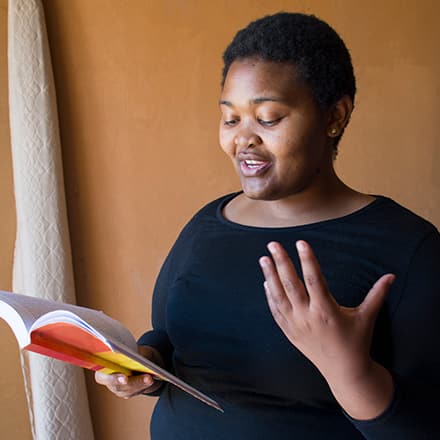
Why is Poetry Important? Celebrating National Poetry Month
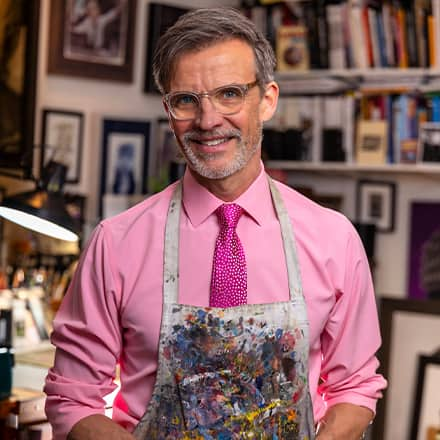
Meet Betty White Stamp Artist Dale Stephanos, SNHU Graphic Design Grad
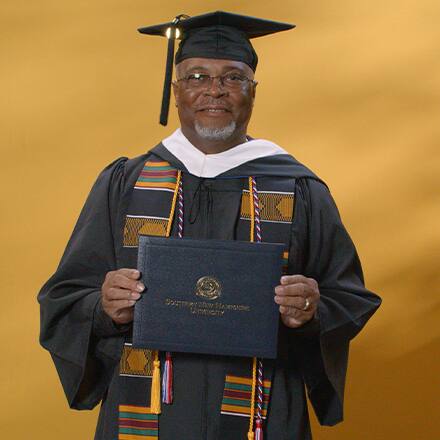
SNHU Spotlight: Dennis Peacock, BA in Graphic Design Grad
About Southern New Hampshire University

SNHU is a nonprofit, accredited university with a mission to make high-quality education more accessible and affordable for everyone.
Founded in 1932, and online since 1995, we’ve helped countless students reach their goals with flexible, career-focused programs. Our 300-acre campus in Manchester, NH is home to over 3,000 students, and we serve over 135,000 students online. Visit our about SNHU page to learn more about our mission, accreditations, leadership team, national recognitions and awards.

